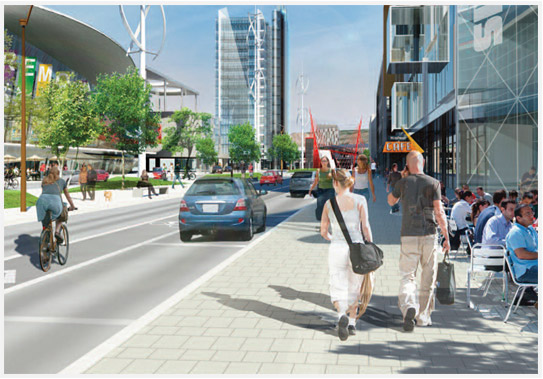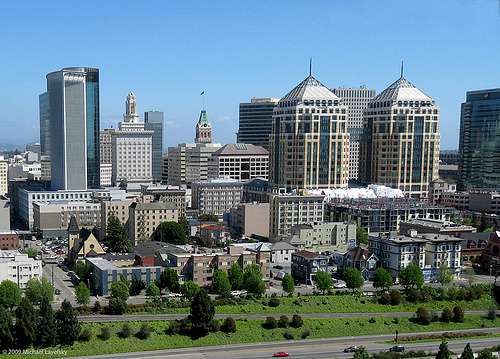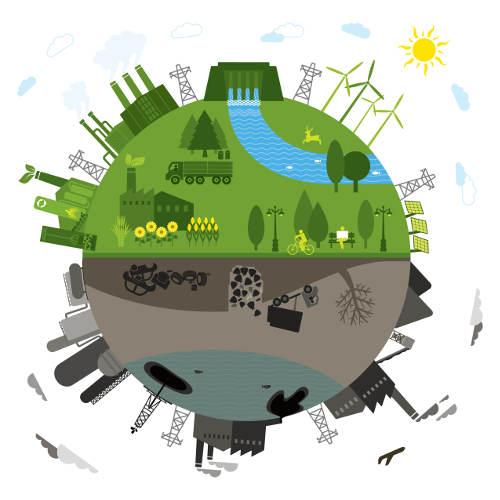
Urban Ecology’s Sustainable Cities program was founded to encourage compact, sustainable land use patterns in the cities and suburbs of the Bay Area. While “smart growth” and “livable communities” have become popular buzzwords, the fact remains that land use policies that introduce higher densities, reduce the amount of land used for parking, or move away from single-use zoning by allowing a diversity of uses are highly controversial. Community residents and elected politicians alike express fears of how these land use policies will change their neighborhood or city. Yet polls show repeatedly that Bay Area residents recognize that the rising level of traffic congestion, the unabated development at the suburban fringe, and the crisis of affordable housing that the region is now experiencing are all partly due to a dominance of land-hungry, suburban, car-oriented land use patterns.
Urban Ecology established this program to educate and organize a constituency to support sustainable land use policies. As many innovative development projects and progressive land use policies are stymied by local opposition, we determined that public and political support for land use reform is one of the keys to creating a more sustainable Bay Area.
Decisions about land use take place through the planning processes that happen year-round in every city and county in the Bay Area. The land use concepts and policies discussed within these processes are complex and often contorted by jargon, leaving many community residents and elected officials in the dark about what is actually proposed-and thus more likely to oppose it. Thus, Urban Ecology’s Sustainable Cities program uses education, networking, and organizing to propose and advocate for land use policy reform.
We are:
– Developing and supporting a Progressive Development Network.
– Building coalitions in Fremont, San Francisco, and Oakland to organize greater public participation in local land use planning.
– Implementing policy reforms that encourage sustainable development and land use practices.


Land Use Profile: Berkeley
Opportunities & Challenges Berkeley is a primarily residential community with a high degree of community activism. There is very little vacant land available, and most of it is undevelopable hillside. The University of California is a major landowner and employer...
The Future of Downtown Oakland Depends on Good Planning
Mayor Jerry Brown’s call for large-scale development in downtown Oakland-known locally as “10K”-has been covered in media around the country. Many longtime Oakland observers are glad for the gleam he has brought to Oakland’s image, and...
Land Use Profile: San Francisco
Opportunities & Challenges San Francisco remains the central axis of the Bay Area, although San Jose to the south outnumbers it in terms of population. It is a dynamic planning environment, with multiple civic projects going up at any given time. It boasts a...
Land Use Profile: Oakland
Opportunities & Challenges Oakland is one the three major cities that anchor the Bay Area and offers tremendous potential for sustainable development. Its assets include an incredibly diverse population, major transit services, the downtown employment center,...
Progressive Development Network
To further our vision of a sustainable Bay Area — one with a healthy environment, equitable community, and strong local economy — Urban Ecology created the Progressive Development Network. The Network was established to link developers with cities and...
